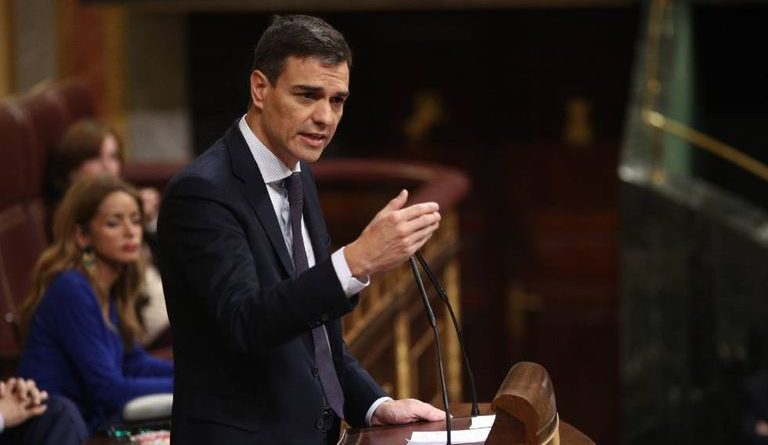Spain extends state of emergency amid record surge
The Spanish Parliament voted to extend the country’s state of emergency for six more months on Thursday as the Health Ministry reported another record surge in coronavirus cases.
Spain’s leftist government has received approval from parliament to extend a national state of emergency until May.
The measure, which was introduced last Sunday as part of efforts to halt the spread of coronavirus, includes a curfew, and gives regional governments increased powers to implement their own restrictions.
The present state of emergency expires on November 9th, and on Thursday the government of Pedro Sánchez asked congress to keep it in place for another six months.
“A long winter is coming,” health minister Salvador Illa told the chamber. “We will have to adapt to a holiday season that will be different. But we are convinced that an extra effort is needed because this is about protecting the health of the most vulnerable, protecting the national healthcare system and protecting its professionals.”
The motion was approved with 194 votes in favour, 99 abstentions and 53 votes against. However, the government has agreed to review the state of emergency in March.
Officials reported another 23,580 cases, bringing the country’s total number of confirmed infections to 1.16 million.
Active hospitalizations also jumped significantly, with 17,520 active COVID-19 patients now using 14% of Spain’s total hospital beds and 26% of intensive care units.
The total number of COVID-19 deaths rose by 173, bringing the total to 35,639.
This state of emergency, which was declared on Sunday, gives Spain’s regional governments more legal backing for measures that infringe on basic rights like curfews or restricting mobility.
In Thursday’s vote to extend the measure until May 9, the main opposition party abstained, but its leader Pablo Casado said they will denounce the six-month extension in Europe.
Far-right party Vox said it would challenge the extension in the Spanish court, as the Constitution stipulates that the parliament must renew a state of emergency every 15 days.
Yet more and more governments are taking advantage of this new power by erecting temporary borders within Spain, which only permit essential travel.
On Thursday, the Catalan government announced that it would close its borders at midnight and restrict people from leaving their cities on the weekends. Andalusia, Cantabria and Murcia announced similar measures.
Meanwhile, the Madrid government said it would only limit travel during two upcoming long weekends.
Only Valencia, Galicia, Extremadura and Spain’s islands have not announced mobility restrictions.
Curfews are also in place everywhere except for the Canary Islands.
Last week Spain became the first European country to surpass 1 million cases of Covid-19 since the pandemic began. On Thursday the health ministry reported 23,580 new cases, 9,395 of them diagnosed over the previous 24 hours. There were 173 Covid-related deaths since the previous day.
Legal framework
A state of emergency had only been used in the Spanish democratic era once before this year. However, Mr Sánchez has decreed it three times, using the mechanism as the legal framework for a national lockdown in the spring, before triggering it again, exclusively in the Madrid region, earlier this month. Now it is in place nationwide in response to the second wave of coronavirus.
Twelve of Spain’s 17 regional administrations are using the state of emergency to introduce self-confinement, preventing unnecessary travel in and out of those regions.
Catalonia has announced additional restrictions on weekends for the next two weeks, preventing movement to and from towns and cities.
The local government in Madrid, meanwhile, announced the closure of the region’s borders only for certain days during upcoming bank holidays. After a brief standoff on Thursday, the central government agreed to the strategy although it appeared to violate the state of emergency which states that any such measures must be in place for at least a week.
Party in Madrid
As Spain introduces these new measures there has been controversy after government ministers and other political leaders were seen attending a party in Madrid earlier this week.
Photographs of the event, organised by El Español newspaper, showed Mr Illa, among other ministers, sitting and standing close to others present, with some guests removing their face masks. Opposition Popular Party (PP) leader Pablo Casado was also pictured.
Government spokeswoman María Jesús Montero said that although safety measures were in place at the event, it was clear that the political class needed to “take a good look at itself”.
